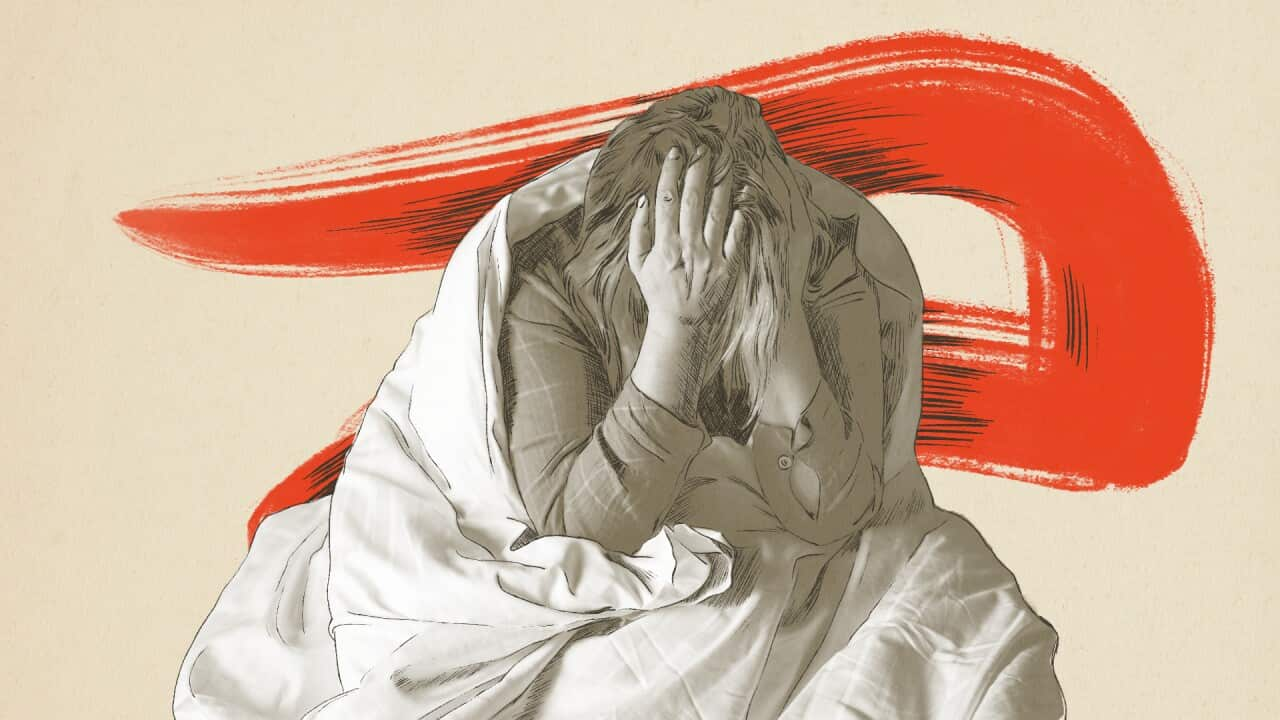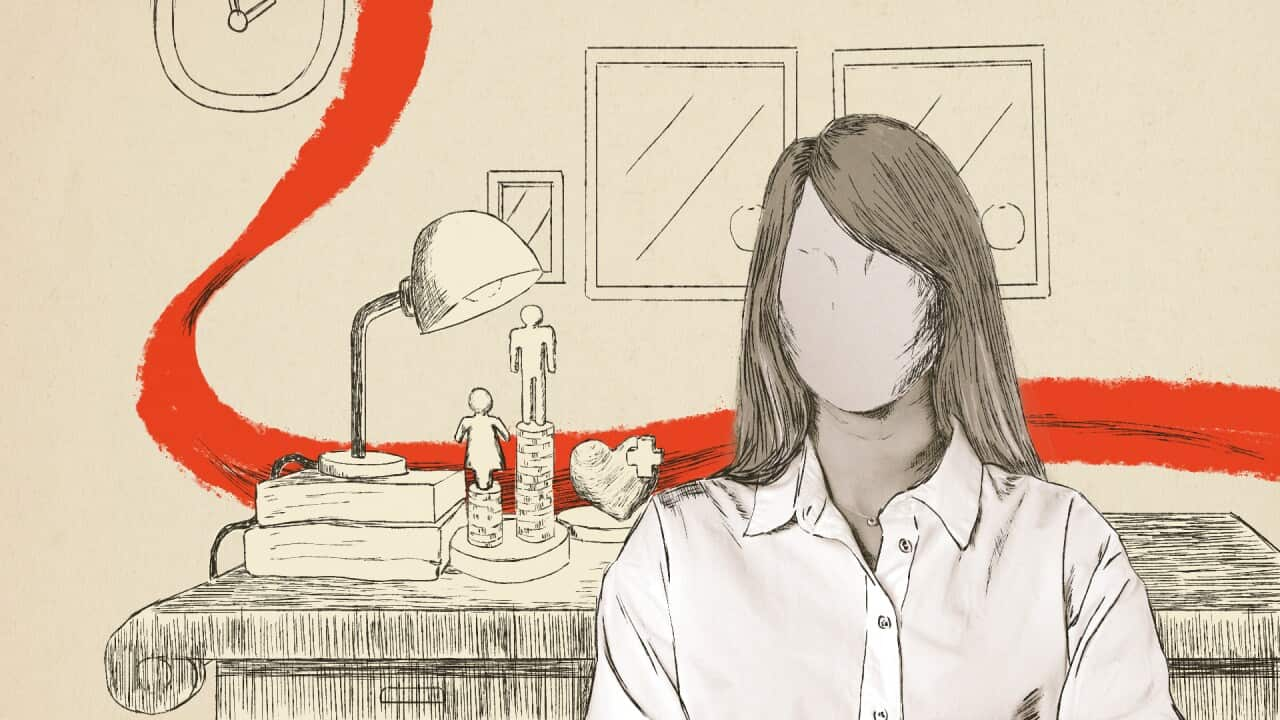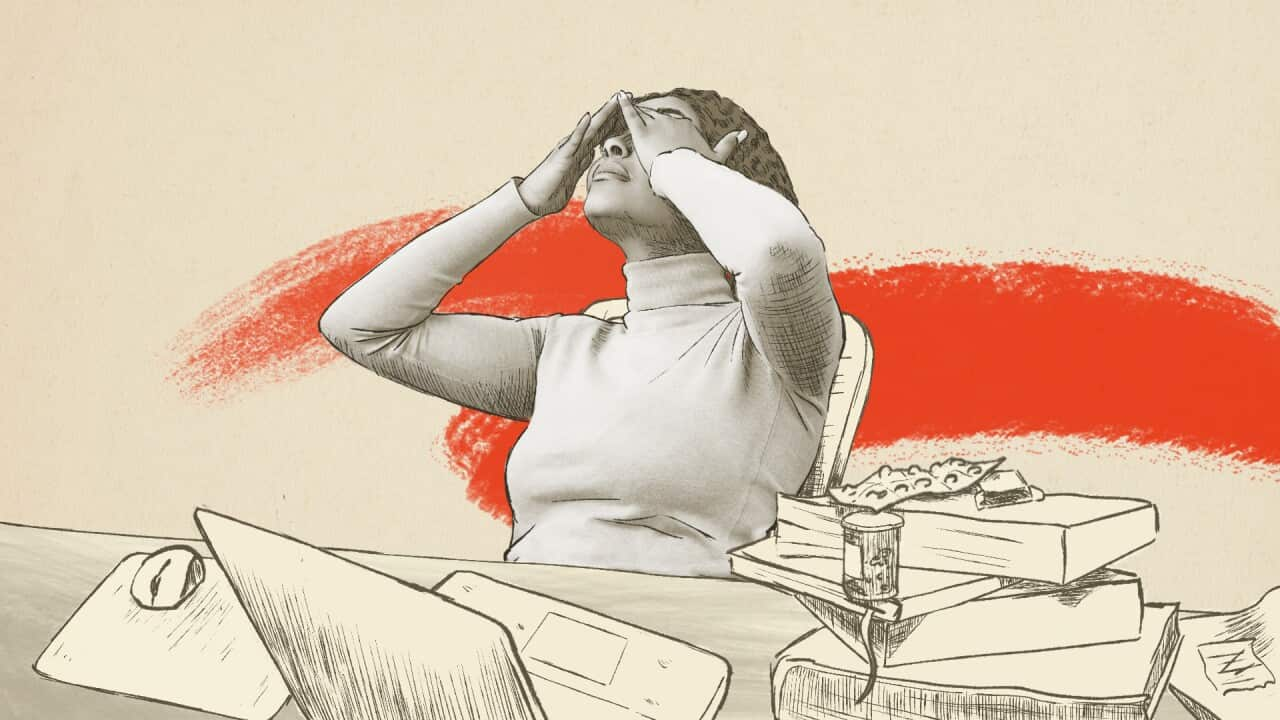A warning: this episode contains references to suicidal ideation.
TRANSCRIPT
"It was just overwhelming, the feeling of not wanting to be here or feeling helpless of having huge anxiety. But what I didn't realise is that it can get much worse when you hit perimenopause, which I had never heard about."
"Brain fog, mood changes often to the point that people have left work because it's been so debilitating for them, but they hadn't made the connection that it might've been part of menopause."
A call to improve health and economic outcomes during a life stage just over half our population will confront.
A Senate report into perimenopause and menopause has tabled 25 recommendations for the government to adopt.
This comes after nearly 300 submissions were made from people across Australia - including women with lived experience, advocates and health experts.
In this bonus episode of 'Hysterical' we follow up on this issue - and take a look at what women across Australia are calling for when it comes to improving awareness and support during this stage in their lives... and how governments are being called upon to respond.
Menopause is a single date in time when you have your final period, while perimenopause is the stage before menopause where you can experience similar symptoms including hot flushes, night sweats and mood swings.
Cilla de Lacy suffered enormously when her symptoms of pre-menstrual dysphoric disorder worsened during perimenopause.
She says she was completely unprepared.
"What I didn't realise is that it can get much worse when you hit perimenopause, which I had never heard about, never heard about perimenopause. I'd heard about menopause and hot flushes, and I thought that happened in your fifties, if not sixties, but I just ploughed blindly into this perimenopause in my mid forties, coinciding with a particularly difficult and challenging time in my career."
Cilla's anxiety and depression included experiencing suicidal ideation.
"Now, this became acute while I was in the throes of perimenopause. And a lot of people don't know this, but women are four to five times more likely to try and commit suicide than men, but men actually complete suicide more than women. So if that's not a cry for help, I don't know what is. So that was the most scary, most debilitating symptom that I had during that time. And I dealt with that before I was diagnosed with PMDD. Now, this became acute while I was in the throes of perimenopause. And a lot of people dunno this, but women are four to five times more likely to try and commit suicide than men, but men actually complete suicide more than women. So if that's not a cry for help, I don't know what is. So that was the most scary, most debilitating symptom that I had during that time. And I dealt with that before I was diagnosed with PMDD. And when I went onto the medication at the time I was diagnosed, that stopped. But when I hit perimenopause, it all started again and it was very acute. It was just overwhelming, the feeling of not wanting to be here, of feeling helpless, of having huge anxiety."
It was 18 months before she received the appropriate treatment - after failing to receive answers on what she was experiencing.
Cilla lives in Perth but it took a telehealth call with an expert on the east coast of Australia to get appropriate answers.
"My biggest concern was the impact that my behaviour was having on relationships, on my family mostly. And so I wanted a solution to this and the number of dead ends. I went down seeing a gynaecologist, just throwing me a whole heap of scripts. I just walked away and just put the scripts in a drawer. I thought, you still haven't explained to me exactly what's going on with me. I don't know what all this medication's going to do really."
The very first recommendation of the report calls for the Department of Health and Aged Care to establish an evidence base about the impacts of menopause and perimenopause on women in Australia, with mental health noted as a key category.
Professor Caroline Gurvich is an Associate Professor from Monash University and clinical neuropsychologist.
She's also Deputy Director of Her Centre - which is dedicated to understanding and treating mental illnesses experienced by women.
She explains what premenstrual dysphoric disorder is and how this can worsen during perimenopausal years.
"So premenstrual dysphoric disorder, so PMDD is a severe form of PMS, which is premenstrual syndrome. So this can happen during someone's reproductive years when they're experiencing a menstrual cycle. And PMDD can be really debilitating for some women and it's a range of psychological symptoms and one of them is a depressive type symptom that happens to women in the two weeks, sometime in the two weeks leading up to menstruating and then the symptoms disappear after someone has their period. It can get worse for some women in those perimenopausal transition years. And then it obviously resolves in post menopause."
Symptoms can include anything from extreme or sudden mood changes, irritability, anger, changes in concentration, feelings of being overwhelmed, and insomnia.
These symptoms can also appear for women in other mental health conditions during perimenopause and menopause.
But Professor Gurvich says there needs to be greater awareness around the mental health challenges that can arise during this period.
Clinically a"s a neuropsychologist, I see a lot of women who are post-menopausal and they have experienced changes in their thinking skills. Brain fog, mood changes often to the point that people have left work because it's been so debilitating for them, but they hadn't made the connection that it might've been part of menopause. And the committee from the Senate inquiry also recommends more education amongst health professionals because I think sometimes people can turn to some health professionals who don't have the knowledge that they need and haven't been educated in this field, and sometimes their symptoms are dismissed, and that can be even more negatively impactful for women who try to bring it up."
A few of the recommendations also centre around improving economic outcomes for women during this period - in particular, calls for more flexible work arrangements and calls for the government to research reproductive and sexual health leave.
Assistant Minister for Health Ged Kearney said in a response to SBS that it's astonishing that it's a struggle to get appropriate treatment and information for an experience that 51% of the population will have.
She added that the Senate Inquiry has shone a light on the needs of women, whether its dealing with heavy bleeding, mental health needs, trouble sleeping or impacts on relationships, and that the government welcomes the report and will work through the detailed recommendations.
South Australian Senator Marielle Smith is Deputy Chair and co-sponsor of the inquiry.
She says as a start there's a lot of small but significant changes that employers can make to improve working conditions for women experiencing perimenopause or menopause.
"Women told us it could be as simple as a desk fan at their desk, a slightly flexible start time if they suffer from insomnia or temperature controls and more breathable uniforms. Obviously those are changes which can be made in office environments for women in professions like early learning, women working on the factory floor or on the checkout, those sorts of changes won't be possible, and that's where there's a question about the benefits of reproductive and sexual health leave."
But advocates working in the space are wary about introducing sexual and reproductive health leave.
In fact, Jean Hailes' 2023 Women's Health survey found seven in ten women thought employers would actively discriminate against women if there was a menopause leave available.
Dr Sarah White is Chief Executive of the organisation Jean Hailes for Women's Health.
It's an organisation that provides a range of health services for Australian women.
"Jean Hailes has been quite worried that if we have just a very specific menopause leave, what we do is we other women of a certain age, and we already have quite a level of gendered ageism in workplaces in. So creating leave specifically for a woman in midlife, we fear would cause some employers to look at a woman and her age and make a decision based on hiring or retaining that woman for fear of what they might need to do to cater to her needs."
But she says workplaces should definitely adopt more flexible arrangements to accommodate women's needs during these changes.
"So the approach of workplace flexibility, I think hits the right note. Workplace flexibility could be as simple as, if you like, ensuring that menopause is a reason to be able to request an access. Workplace flexibility. It could be as simple as changing up uniforms so that women can take off layers if they're having a hot flush. Access to water access to toilets. I think the challenge is we have women in so many different working environments, it's going to be really important for employers to consult with their workforce with their women or the people who might be experiencing menopause and work out what is best for them."
A number of submissions called for research around experiences for culturally and linguistically diverse and First Nations women.
The report also referenced the government's existing $13 million funding commitment to the Multicultural Centre for Women's Health's current 'Health In My Language' program which provides in-language health expertise for migrant women, as well as culturally and linguistically diverse women.
Delaram Ansari is Research, Advocacy and Policy Manager at the Multicultural Centre for Women's Health, and says the centre welcomes the report's recommendations.
"But we were particularly pleased to see some of MCWH'S recommendations and also longstanding advocacy issues being mentioned across the report and not just in the recommendations only. One is the actual establishment of a comprehensive evidence base and the need for that intersectional data and responses, which we really have been advocating for a while."
However, most references to these communities in the report centred around research rather than direct action to ensure culturally safe care.
Ms Ansari also called for all women, regardless of their visa status, to receive access to supports such as Medicare to meet the costs of healthcare.
"We also really want to note that that intersectional lens and analysis has to be adopted across all of the recommendations to make sure it meets the needs of migrant and refugee women and gender diverse people. For example, we need to ensure we are extending the healthcare and support services, including Medicare, PBS, NDIS, and social security payments to include all migrant and refugees. And that's regardless of their visa status. And that also needs to include the cost associated with diagnosis, treatment or support relating to a management of perimenopause and menopause."
The government is in fact being asked to review existing Medicare Benefits Schedule item numbers relevant for menopause and perimenopause consultations, as well as consider action to address the shortages of menopause hormonal therapy, or MHT, in the Australian market.
Professor Gurvich says ensuring access to MHT is vital as it can be very beneficial for some people, and also calls for further research into the hormone therapy.
"I think it is something that so many women benefit from MHT, and so it definitely needs to be something that's accessible for women to have, and just on individual case studies, when you see women who have benefited from MHT and then suddenly can't access it, it really is quite negative for them and an awful experience. So making sure that it is something that's accessible is really important. So that's another great recommendation."
Cilla says MHT has been an invaluable part of her treatment.
She calls for the government to take action to spread awareness of perimenopause and menopause, in particular for women like herself who are more vulnerable to confront mental health issues.
"Those women like me with PMDD should not plough blindly into perimenopause knowing nothing about it, not being forewarned because forewarned is forearmed because for us, it's going to be a battle for 70% of women. It's probably not going to be that bad. But for the 20 to 30% that have severe symptoms, we've got to get the treatment because once you get it, my God, my life is so different now. My husband said he's got the old Cilla back. I feel absolutely amazing, and it's all because I finally found the right treatment, but it shouldn't have been that hard, and I should have been forewarned."
And if you or someone you know needs support, call Beyond Blue on 1300 224 636 or call Lifeline on 13 11 14.
You've been listening to a bonus episode of our SBS News series 'Hysterical'... stay tuned for more episodes at SBS News, Spotify, Apple or wherever you listen.













